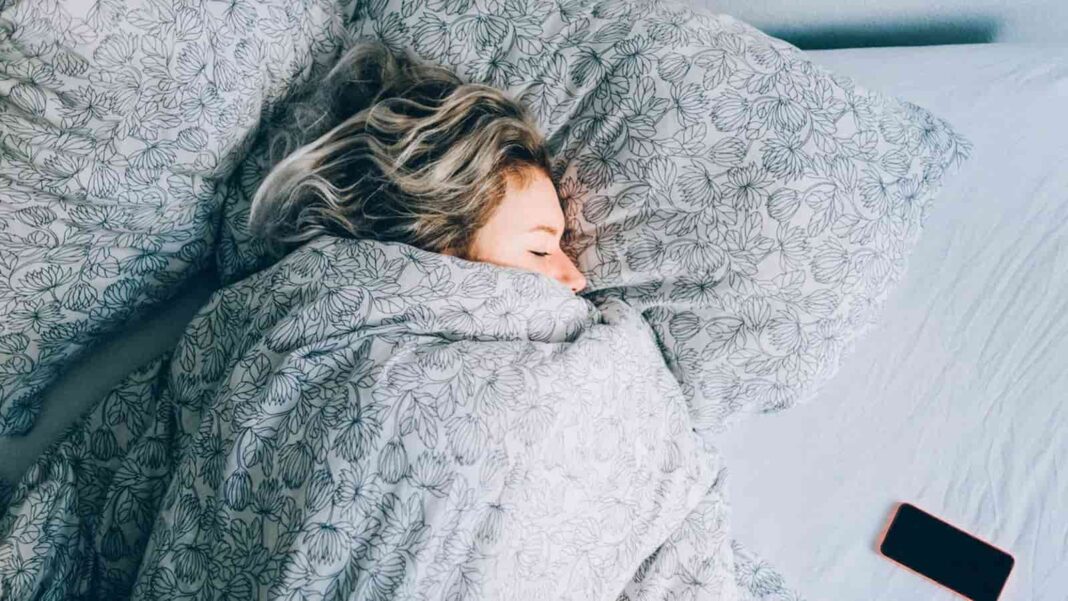The Importance of Sleep: Getting enough sleep is, on the surface, about feeling well every day and having the energy to get through the activities of the day.” Because there is a lot more to sleep than that, let’s delve further into it.
A vital component of living is the act of sleeping. We indeed require it to survive, just as we require food and water. It exerts an influence on almost all of the body’s systems. Your brain, heart, lungs, immune system, metabolism, emotions, and other bodily functions are all directly impacted by the quantity and quality of sleep that you engage in. It does not matter what stage of life you are now in; this fact is always true.
Although the significance of sleep cannot be disputed, the definition of “optimal sleep” is contingent upon the individual’s age as well as their specific requirements. As one gets older, their sleep requirements shift. As well as some information that can assist you in avoiding sleep problems, here is how they alter.
For infants and young children, sleep is essential
When it comes to the cognitive and physical development of infants and children, sleep is absolutely necessary. There is a significant correlation between getting enough sleep and cognitive development, executive function, language development, and memory in infants and early children, according to studies.
Guidelines for sleep for infants and toddlers through the early years of childhood
New parents may not have enough time for sleep, but newborns have the highest sleep needs. Infants sleep for sixteen to eighteen hours per day at first, but their sleep hours are rarely continuous because they eat and change diapers often. The recommended amount of sleep then begins to gradually decline from that point on.
Depending on the age of the individual, the American Academy of Sleep Medicine recommends the following amount of sleep (including naps):
- Ages 4 to 12 months: 12 to 16 hours
- Ages 1 to 2 years: 11 to 14 hours
- Ages 3 to 5 years: 10 to 13 hours
- Ages 6 to 12 years: 8 to 10 hours
A guide on enhancing the quality of sleep for newborns and young children
You may be wondering how you can make sure that your child gets enough sleep despite experiencing growing pains, sickness, teething, sleep regressions, and other challenges. Consistency in habits is crucial, according to experts in the field of sleep. The following are some suggestions for sleep that should be adhered to, and they can be applied to both infants and young children.
Discover the Top 20 Budget-Friendly Destinations for Your Next Flight
- A soothing ritual before bed should become the habit. A warm bath, a place that is dark, and white noise from a sound machine are all examples of things that could fall under this category. Be certain that the individuals who are caring for your child adhere to the routine.
When the infant is exhausted and ready to sleep, lay them down. - It is important to wait until your child is weary and ready to sleep before putting them to bed. This can be accomplished by rocking them or reading them before bedtime. The development of an understanding of their bed and the courage to fall asleep on their own are both facilitated by this opportunity. Before you lay them down, you should make every effort to prevent them from falling into a deep sleep.
- Try to avoid reacting too hastily. If you are certain that your infant or child is not sick and they are becoming fussy while they are in their crib, you should give them some time to calm themselves before you return.
Sleep in adolescence
It is possible that adolescents might not require as much sleep as they did when they were babies; yet, getting enough sleep is still essential for the intellectual, physical, and emotional development of adolescents. Teenagers may have a difficult time getting a good night’s sleep.
According to studies, the levels of testosterone in boys increase to 26 times the levels they were at before puberty, while the levels of estradiol in girls increase to 10 times the levels they were at before puberty arrives. Along with this significant change, there is also a significant rise in the levels of growth hormone in both males and females. In addition to significant bodily growth, the adolescent years are frequently characterized by significant shifts in social norms. The normal sleep habits of a teenager may be disrupted as a result of the combination of normal physical development and normal social development.
On school nights, the Centers for Disease Control and Prevention discovered that between 57% and 72% of teenagers did not obtain the quantity and quality of sleep that they needed. The chance of developing medical illnesses and diseases, such as diabetes, obesity, poor mental health, injuries, and poor attention and behavior, is significantly increased in adolescents who do not obtain the recommended amount of sleep.
It is recommended that adolescents get enough sleep.
Teenagers between the ages of 13 and 18 should get between 8 and 10 hours of sleep per 24 hours, according to the Centers for Disease Control and Prevention (CDC). Many adolescents, in contrast to infants and young children, do not nap, which means that the required eight to ten hours of sleep must be consumed in a continuous fashion.
Obstacles to sleep that adults face due to their health
The following are some broad suggestions that might help adolescents improve their sleep hygiene and ensure that they receive enough sleep.
- Maintain a constant approach. To prevent falling off track on the weekends, it is important to maintain a consistent sleep routine on school evenings as well as nights when school is not in session.
- In addition, this helps to prevent more serious problems, such as delayed sleep phase syndrome, which affects around 9 to 10 percent of adolescents.
- Bed should only be used for sleeping. Refrain from engaging in other activities such as engaging in schoolwork, listening to music, or utilizing technology.
Move your body. - Exercise should be incorporated into your regular routine.
- Enhance the quality of sleep in the bedroom. The room should be kept cool, dark, and silent. Think of things like black-out window blinds and white noise; these are both options.
Avoid using stimulants. It is strongly recommended that coffee be avoided in the late afternoon, and that alcohol, smoking, and sleep aids be completely avoided.
There is a correlation between our age and the likelihood of getting health problems such as diseases and disorders. The following are some of the conditions that may interfere with a restful night’s sleep:
Sleep in adulthood
Now that we are adults, we have reached the point of developmental maturity. In the animal realm, grownups, just like every other species, nonetheless require sleep. It is recommended by the National Institute of Health that the majority of adults get a minimum of seven hours of sleep every single night. that a healthy diet and regular exercise are not the only factors that contribute to good health. The absence of it increases the likelihood of developing diseases and problems.
Similar to earlier periods of life, adults face challenges when it comes to getting a decent night’s sleep. Your sleep may deteriorate as a result of a number of life events, including but not limited to the demands of work, relationships, dealing with child rearing, and financial issues.
Advice on enhancing one’s sleep quality as an adult
It is advisable to consult with your primary care physician if you are experiencing persistent difficulties falling or staying asleep. It is possible that a continuous positive airway pressure (CPAP) machine will be beneficial to you if you suffer from a condition such as sleep apnea. In the event that you do not have any known medical conditions that can be treated to help you have a better night’s sleep, the following are some suggestions for increasing the quality of your sleep.
- Insomnia
- Sleep apnea
- Depression
- Anxiety
- Cancer
- Injury
- Cardiovascular disease
- Diabetes
Tips for improving sleep in adulthood
- Get plenty of rest every night. As an adult who is constantly on the go, it is simple to dismiss sleep as a choice, although it is essential to one’s survival. Take that approach to it.
Avoid using stimulants. - In the evening, you should steer clear of items like sugar, coffee, and alcohol, or even better, you should completely abstain from them.
- Build up a regular schedule. Make an effort to maintain a regular pattern for going to bed and getting up that is efficient for you.
- Power down before going to bed. Turn off all of your electronic devices at least two hours before you want to go to sleep in order to avoid being exposed to blue light before you go to sleep.
- Put yourself in a state of sleep. Your room should be kept cold, dark, and quiet.
- A nap. It is possible that there is not much you can do to put an end to the fact that something like becoming a new parent is keeping you up at night. If you have the chance to take a nap during the day, you should definitely take advantage of it.
25 Hidden Websites to Make Money Online in 2024
Sleep in older adults
Sleep is still important for maintaining good health even if the recommended amount of sleep lessens as we age. Within twenty-four hours, older adults still require a minimum of seven hours of excellent sleep. As people get older, their brains produce less melatonin, which can disrupt the circadian rhythm. Older people have more difficulty falling asleep or staying asleep for extended periods of time. 50 percent of older people have difficulty sleeping, compared to 15.9 to 22.3% of the general population.
Issues related to health that lead to insufficient sleep in elderly adults
The natural process of aging is not the only factor that can cause sleeplessness; medical problems and medications (such as antidepressants, beta-blockers, and diuretics, among others) can also contribute to this issue. As we get older, our likelihood of developing diseases and disorders continues to rise, and it is not uncommon for someone in their latter years to suffer from more than one of the following conditions:
- Osteoarthritis
- Cardiovascular disease
- Pulmonary disorder
- Psychiatric illnesses
- Diabetes
- Gastroesophageal reflux
- Cancer
- Arthritis
- Chronic pain syndrome
- Depression
- Anxiety
- Sleep apnea
- Dementia
- Sleep disorders are also more prevalent among the aging population. Some common sleep disorders that impact older adults are:
- Insomnia
- Sleep apnea
- Rapid eye movement sleep disorder
- Circadian rhythm sleep-wake disorders
Listed below are some suggestions that can help older folks get a good night’s sleep.
- Ignore the snooze in the afternoon. Taking a nap late afternoon prevents you from going to bed regularly, so you should forego it.
- Establish a consistent regimen. You should make an effort to go to bed and wake up at roughly the same time every day.
- Avoid taking any stimulants. Avoid items like sugar, coffee, and alcohol in the evening, or even better, abstain entirely.
- Stop using the electronic devices. Turn all electronics off two hours before you plan to sleep so you won’t be exposed to blue light.
- Ensure that your space is comfy. Your room should be kept cold, dark, and quiet.
Work out. You should exercise every day, but within three hours of the time when you intend to go to bed. - Eat a light meal at dinner. Consider having a larger breakfast or lunch and a smaller dinner if you are someone who enjoys eating enormous meals. When you are attempting to sleep, this will assist you avoid stomach difficulties.
- Consult with a qualified medical professional. If you cannot establish a stable sleep pattern, it is advisable to consult with your physician to ascertain the underlying cause and the steps that may be taken to rectify the situation.







